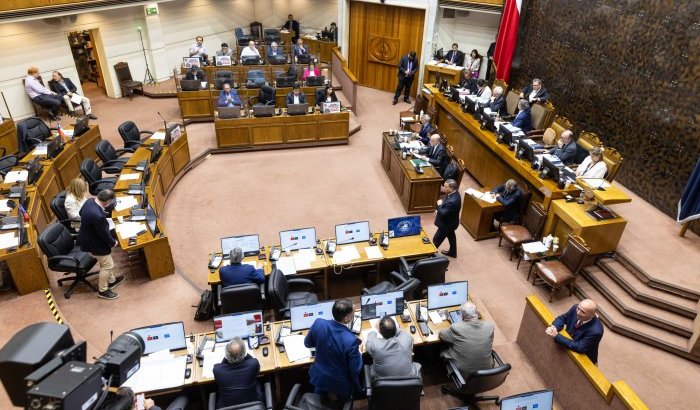- The Senate supports the extension of the state of emergency in La Araucanía and the provinces of Arauco and Biobío, aiming to reinforce security and public order.
The Chilean Senate approved the extension of the constitutional state of emergency in the southern macrozone of the country, specifically in the La Araucanía Region and the provinces of Arauco and Biobío in the Biobío Region. With 31 votes in favor, 1 against, and 2 abstentions, the measure will be extended for an unprecedented period of 30 days, in an effort to protect the inhabitants of the area and uphold respect for human rights.
The decision, which must now be ratified by the Chamber of Deputies, follows a recent constitutional reform that allows the President of the Republic to extend the state of emergency for 30-day periods after six successive extensions, always with the agreement of the National Congress.
During the debate, senators such as José García, Carmen Gloria Aravena, Enrique Van Rysselberghe, and Kenneth Pugh, while acknowledging the necessity of the measure, emphasized the importance of addressing the specific challenges in La Araucanía, where fear and violence persist. Calls were made to enhance the effectiveness of measures, increase patrols and the presence of police and security forces, and accelerate the implementation of new laws, such as those on intelligence and counterterrorism.
Additionally, the issue of wildfires in the Biobío Region was raised, along with the need for the State to compensate local providers for services rendered during such emergencies.
The Minister of the Interior and Public Security, Carolina Tohá, acknowledged that concerning security situations still exist but highlighted significant progress in the matter. She also emphasized the joint session of the National Defense and Public Security committees to be held on-site this Thursday, January 25, in Temuco. The visit aims to gather detailed information on the measures adopted by the President under the state of emergency and assess the effects and outcomes of these actions.
High-ranking officials from the country's security and defense forces, as well as local authorities, have been invited to the session to discuss and analyze the security situation in the southern macrozone.







Comentarios (0)
No hay comentarios aún. ¡Sé el primero en comentar!
Deja un comentario